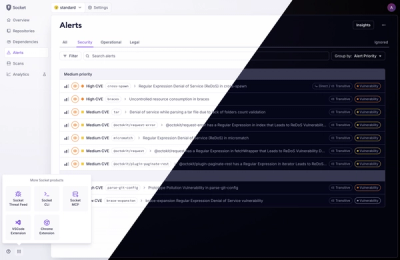Pagination for Angular, powered by signals 🚦
Features
- All signals, no RxJS
- Works with in-memory data as well as fetching data from server on page change
- Keep it simple by using the predefined template
- Take control by rolling with your own template
- Page number is reflected in URL
- Not using the
RouterModule for this as it uses RxJS
Caveats
- Page number is reflected in URL, but is not unique for all pagination controls. Having multiple pagination controls on one page is not currently supported.
Todos
- Deploy a live demo site
- Deploy an example project
- Add something like 3 default templates
- Default asynchronous template could use a better loading indicator
- Improve type-safety with custom template. These
let-... are currently of type any.
<ng-template
#paginationTemplate
let-currentPage="currentPage"
- Improve type-safety with asynchronous data retrieval. Your query should return this format for pagination to work:
this.todoDal
.getAll(this.pageChanges() ?? this.simpleQueryStringService.getPageFromQueryString() ?? 1)
.then(res => ({
pagedData: res.todos,
currentPage: res.currentPage,
nrOfPages: res.nrOfPages,
}));
That's currently not clear, the query parameter now accepts anything defined through injectQuery().
query = input.required<CreateQueryResult<T, any>>();
Due to angular-query's type narrowing, it's a bit tricky to customize this.
Installation
npm install ngx-signal-pagination
Usage
With in-memory data
First, the TypeScript bits - import the pagination component, define data and define pagination config:
@Component({
selector: 'omg-awesome',
imports: [NgxSignalPaginationComponent],
templateUrl: './awesome.component.html',
})
export class AwesomeComponent {
shows = [
{ title: 'Game of Thrones', rating: 9.5 },
{ title: 'Black Mirror', rating: 9.5 },
];
paging: PaginationOptions = { nrOfItemsPerPage: 5 };
}
Then you can either use the default template:
<ngx-signal-pagination [data]="shows" [config]="paging" #pagination />
<ul class="list-[square] ml-4">
@for (show of pagination.pageData(); track show.title) {
<li>{{ show.title }} gets a {{ show.rating }}</li>
}
</ul>
Alternatively, you can roll your own template:
<ngx-signal-pagination [data]="shows" [config]="paging" #paginationCustomTemplate>
<ng-template
#paginationTemplate
let-currentPage="currentPage"
let-pages="pages"
let-previous="previous"
let-next="next"
let-goTo="goTo"
>
<ol class="flex">
<li class="p-3" (click)="previous()">previous</li>
@for (page of pages(); track page) {
<li class="p-3 border-solid border-amber-300 border-b-2" [class.bg-amber-300]="page === currentPage()" (click)="goTo(page)">
{{ page }}
</li>
}
<li class="p-3" (click)="next()">next</li>
</ol>
</ng-template>
</ngx-signal-pagination>
<ul class="list-[square] ml-4">
@for (show of paginationCustomTemplate.pageData(); track show.title) {
<li>{{ show.title }} gets a {{ show.rating }}</li>
}
</ul>
With asynchronous data retrieval
Asynchronous data retrieval works using the @tanstack/angular-query-experimental library. You'll need to define your query, as well as do a bit of page change handling*.
*I've tried exposing a signal from the pagination component, but this signal not always being there due to the rendering lifecycle made this approach quite cumbersome.
First, the TypeScript bits - import the async pagination component, define your and define pagination config:
@Component({
selector: 'omg-awesome',
imports: [NgxSignalPaginationAsyncComponent],
templateUrl: './awesome.component.html',
})
export class AwesomeComponent {
private todoDal = inject(TodoDal);
private simpleQueryStringService = inject(SimpleQueryStringService);
paging: PaginationOptions = { nrOfItemsPerPage: 5 };
pageChanges = signal<number | null>(null);
todoQuery = injectQuery(() => ({
queryKey: ['todos', this.pageChanges() ?? this.simpleQueryStringService.getPageFromQueryString() ?? 1],
queryFn: () => this.todoDal.getTodos(this.pageChanges() ?? this.simpleQueryStringService.getPageFromQueryString() ?? 1),
placeholderData: prev => prev,
}));
goToPage(p: number) {
this.pageChanges.set(p);
}
}
In this scenario, my TodoDal looks like this:
@Injectable({ providedIn: 'root' })
export class TodoDal {
#todos = [
'#1 Clean the house',
'#2 Eat food',
'#3 Exercise',
];
getTodos(page: number): Promise<{ pagedData: any[], currentPage: number; nrOfPages: number; }> {
return new Promise(resolve => {
setTimeout(() => {
resolve({
pagedData: this.#todos.slice((page - 1) * 5, page * 5),
currentPage: page,
nrOfPages: Math.ceil(this.#todos.length / 5),
});
}, 2000);
});
}
}
Then you can either use the default template:
<ngx-signal-async-pagination [query]="todoQuery" (pageChange)="goToPage($event)" [config]="paging" #asyncPagination />
<ul class="list-[square] ml-4">
@for (todo of asyncPagination.pageData(); track todo) {
<li>{{ todo }}</li>
}
</ul>
Or roll a custom template as with the in-memory variant.



